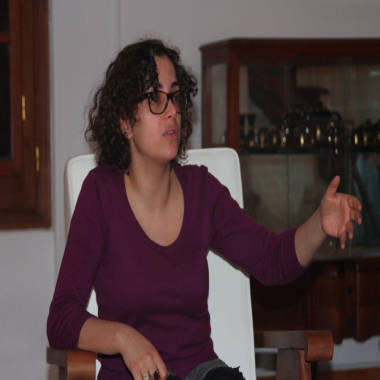Source: http://worldnews.nbcnews.com/_news/2014/01/14/22292917-womens-rights-top-agenda-as-egyptians-vote-on-draft-constitution
CAIRO
- Egyptians were voting in a referendum on the country’s draft
constitution on Tuesday and Wednesday, a document that would enshrine
unprecedented gender equality for women.
Since the so-called Arab
Spring shook Egypt and the region to its foundations in 2010, the roles
and rights of women in the Middle East’s most populous country have been
under the spotlight.
Throughout the revolution that unseated
the government of autocratic President Hosni Mubarak and led to the
election of Islamist President Mohammed Morsi -- who was deposed in a
military coup last year -- the country has debated rampant sexual
harassment, and whether an Islamist government protects or endangers
women.
The referendum, the military-backed government’s first electoral test
since the Morsi’s ouster in July, has also come under fire for
restricting personal freedoms of all Egyptians. For example, it states
that citizens who have attacked the military in any way can be tried in
military court, and would allow forced prison labor and require
government permission for demonstrations.
A number of political parties, including Morsi’s Muslim Brotherhood, have called for a boycott of the referendum.

Mohamed Muslemany / NBC News
Hanaa
Safwat, a 26-year-old artist, is disillusioned by the political process
in Egypt and does not plan on voting in the referendum.
Artist
Hanaa Safwat participated in demonstrations to overthrow Mubarak three
years ago but told NBC News she is now disillusioned.
“I don’t
think it’s worth my effort to drive and put any effort into voting ‘no,’
which would have been the other option,” the 26-year-old said.
“The
referendum is stained in innocent people’s blood. It has been built on
the dead bodies of 800 people in Rabaa al-Adawiya,” Safwat said,
referring to last summer's crackdown on Morsi supporters that led to the deaths of hundreds of Islamist demonstrators.
The referendum and draft constitution do not echo the aims of those who unseated Mubarak in 2011, she said.
“People
asked for economic equality, freedom, dignity [when they overthrew
Mubarak]. I don’t think the constitution in the way it’s been
written…guarantees any of that,” she said.
“It reflects the desires of the June 30 coup," Safwat said, referring to the military's ouster of Morsi.
In
a case of unlikely bedfellows, a conservative housewife in her 50s is
similarly fed-up. The older woman, who adheres to a strict
interpretation Islam and dresses in all-enveloping black robes and
scarves, agreed to speak but only on condition of anonymity because she
fears retribution.
Asked if she was planning to vote, she replied: “Of course not! I don’t accept anything around this."
She also participated in the movement to overthrow Mubarak but has been disappointed by the turn of events.
“I am not asking for Morsi, I am asking for democracy. If you want to come, you have to come through elections,” she said.
As an Islamist, she feels maligned under the current regime.
“We
have no place in this society really. If you give me the choice, I
would want to leave Egypt. You don’t feel free here. If you say your
opinion, you go to prison…. What is this?!”
On the other hand,
Afaf Marie, the director of the Egyptian Association for Community
Participation Enhancement, supports the referendum.
“I am
definitely going to vote and I am going to vote ‘yes',” said Marie.
“This is going to be the first constitution in Egypt’s history that is
recognizing women’s rights.”
Marie praised the provisions in the proposed constitution that protect women.
“An
article says the state should ensure protection of women from all
violence. That means family violence, state violence, street violence,
and protection from sexual harassment at home, in the street in public
places and transportation.”
With two days of voting, and an estimated 160,000 soldiers and
200,000 policemen expected to deploy across the country to guard polling
stations, according to The Associated Press, some allege a culture of
intimidation will force a “yes” vote.
A “yes” vote would pave the way for new presidential and parliamentary elections.
NBC News' F. Brinley Bruton contributed to this report.

No comments:
Post a Comment